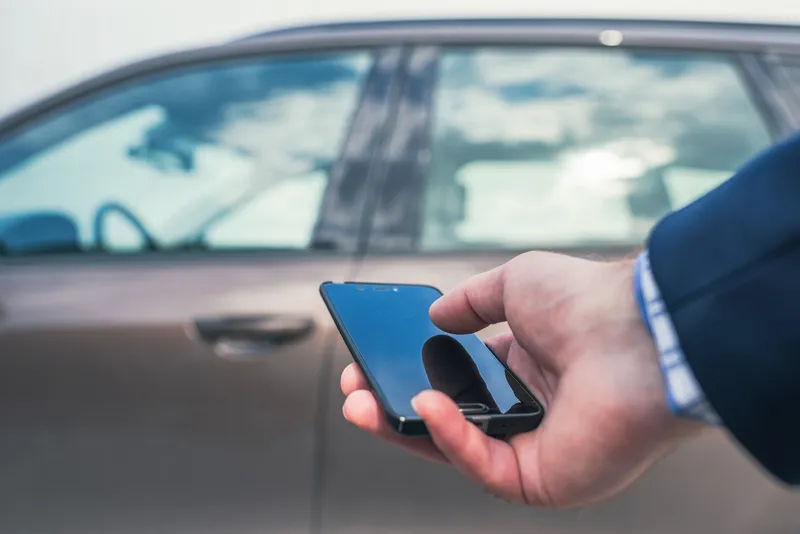New analysis from Frost & Sullivan, Strategic Analysis of the Vehicle-sharing Technologies Market, finds that the global car-sharing user base will reach 26 million members by 2020. Car-sharing operators (CSOs) in North America will lead the way in terms of technology deployments, followed by Europe. To meet the growing demand, partnerships among CSOs, technology companies and original equipment manufacturers will gather pace.
Over the years, vehicle-sharing technologies have evolved from simple manual
November 27, 2015
Read time: 2 mins
New analysis from 2097 Frost & Sullivan, Strategic Analysis of the Vehicle-sharing Technologies Market, finds that the global car-sharing user base will reach 26 million members by 2020. Car-sharing operators (CSOs) in North America will lead the way in terms of technology deployments, followed by Europe. To meet the growing demand, partnerships among CSOs, technology companies and original equipment manufacturers will gather pace.
Over the years, vehicle-sharing technologies have evolved from simple manual systems to increasingly complex computer-based systems. In the next three to seven years, the market will move away from off-the-shelf technologies toward open source software, plug and play systems and smartphone-based near field communications/ Bluetooth low energy (NFC/BLE) technologies. By 2025, automated driving, connected mobility and electric vehicle charging technologies will form the crux of the vehicle-sharing technology market.
“NFC based technologies are being incorporated as a basic standard in smartphones by the majority of the smartphone makers. This will unearth opportunities for cost-effective, smartphone-based remote vehicle control solutions,” said Frost & Sullivan intelligent mobility senior research analyst Albert Geraldine Priya. “CSOs will also be able to deliver a superior ‘car ownership’ experience through automatic personalisation features such as rear-view mirror and seat adjustments configured in the smartphone.”
On the flip side, smartphone-based access control and vehicle tracking solutions have several inherent security issues. The risk of hacking, interception of communication signals, thefts, data corruption and viruses will delay the adoption of smartphone-based vehicle-sharing solutions.
Concerns surrounding the effective integration of third party hardware and software solutions with business processes deter most car-sharing operators from subscribing to third-party services. In addition, legal regulations in some countries fail to create an environment conducive to the uptake of vehicle-sharing technologies. However, the advantages far outweigh the challenges.
“CSOs are looking to attract more subscribers by lowering costs and enhancing user experience through the integration of smartphone-based keyless access into car-sharing solutions,” noted Priya. “Semi-autonomous and fully autonomous cars in vehicle-sharing fleets will become a reality by 2018 and 2025 respectively, further simplifying car-sharing and opening up additional markets for participants in the vehicle-sharing technologies market.”
Over the years, vehicle-sharing technologies have evolved from simple manual systems to increasingly complex computer-based systems. In the next three to seven years, the market will move away from off-the-shelf technologies toward open source software, plug and play systems and smartphone-based near field communications/ Bluetooth low energy (NFC/BLE) technologies. By 2025, automated driving, connected mobility and electric vehicle charging technologies will form the crux of the vehicle-sharing technology market.
“NFC based technologies are being incorporated as a basic standard in smartphones by the majority of the smartphone makers. This will unearth opportunities for cost-effective, smartphone-based remote vehicle control solutions,” said Frost & Sullivan intelligent mobility senior research analyst Albert Geraldine Priya. “CSOs will also be able to deliver a superior ‘car ownership’ experience through automatic personalisation features such as rear-view mirror and seat adjustments configured in the smartphone.”
On the flip side, smartphone-based access control and vehicle tracking solutions have several inherent security issues. The risk of hacking, interception of communication signals, thefts, data corruption and viruses will delay the adoption of smartphone-based vehicle-sharing solutions.
Concerns surrounding the effective integration of third party hardware and software solutions with business processes deter most car-sharing operators from subscribing to third-party services. In addition, legal regulations in some countries fail to create an environment conducive to the uptake of vehicle-sharing technologies. However, the advantages far outweigh the challenges.
“CSOs are looking to attract more subscribers by lowering costs and enhancing user experience through the integration of smartphone-based keyless access into car-sharing solutions,” noted Priya. “Semi-autonomous and fully autonomous cars in vehicle-sharing fleets will become a reality by 2018 and 2025 respectively, further simplifying car-sharing and opening up additional markets for participants in the vehicle-sharing technologies market.”







